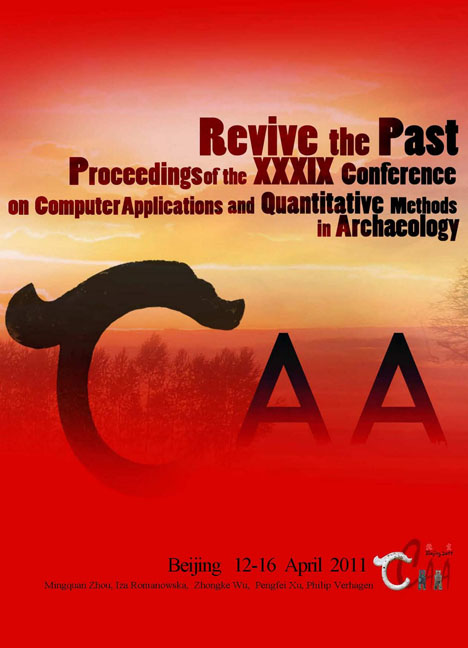 Revive the Past
Revive the Past Process Modelling for Humanities: Tracing and Analysing Scientific Processes
Published online by Cambridge University Press: 23 June 2021
Summary
Abstract:
This paper concerns epistemology and the understanding of research processes in the Humanities, such as Archaeology. We believe that to properly understand research processes, it is essential to trace them. The collected traces depend on the process model established, which has to be as accurate as possible to exhaustively record the traces. In this paper, we briefly explain why the existing process models for Humanities are not sufficient to represent traces. We then present different process models from Information Systems Engineering that allow tracing processes according to different perspectives such as activities, decisions or strategies. We assume these process models can be useful to represent research processes in the Humanities coherently and thoroughly.
Key Words: Process Modelling, Research Processes, Trace
Introduction
Humanities researchers use databases to structure, store, retrieve, share, and analyse their data (Doran and Hodson 1975). For instance, better understanding the possible correlation and dependencies between variables requires quantitative analysis of large amounts of data. Managing such quantities of data proved much easier when storing them in an adequately structured database. In this context, humanities researchers need to encode the initial data, store them in databases, then, they can run different tests depending on their goals: uncover the organizational structure of data, identify significant trends and patterns, show correlations or dependencies between variables. In fact, experience shows that such databases can be exploited to achieve many different goals, following different ways of working that implement different research strategies and use different statistic means (Doran and Hodson 1975).
This approach is relatively new in the humanities, and therefore the primary concern is the scientific validity of the processes achieved with databases. This question cannot be solved without modelling the scientific processes employed by the researchers while working using these databases, which in turn raises two other questions: (a) how to trace those processes, and (b) how to analyse them. Keeping track of scientific processes goes far beyond listing the sequences of statistical tests used by the scientists. Indeed, what has been done is just a facet of why this was done. The problems of modelling the humanities scientific processes in this context is manifold: what are the good formalisms? How to avoid being too normative (every scientist has her/his own way of working)?
- Type
- Chapter
- Information
- Revive the PastProceedings of the 39th Conference of Computer Applications and Quantitative Methods in Archaeology, pp. 245 - 254Publisher: Amsterdam University PressPrint publication year: 2012
- 1
- Cited by


